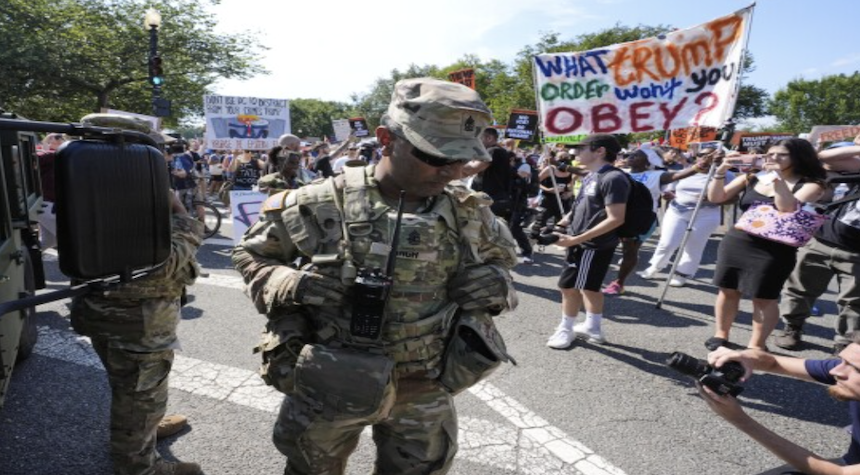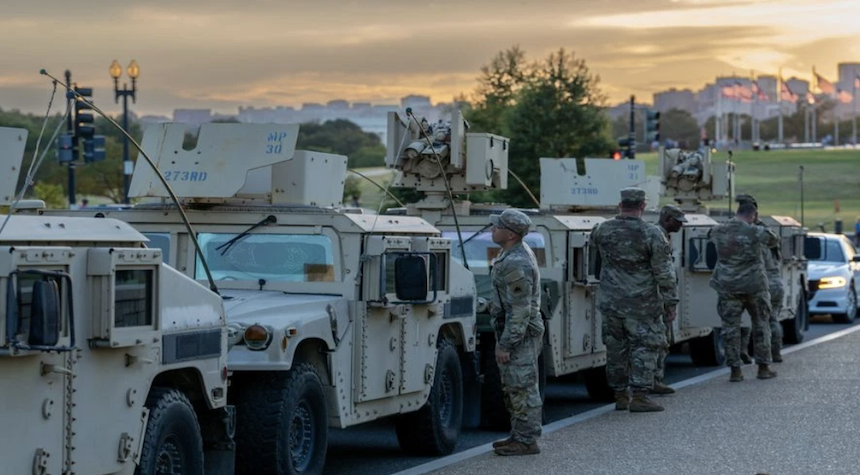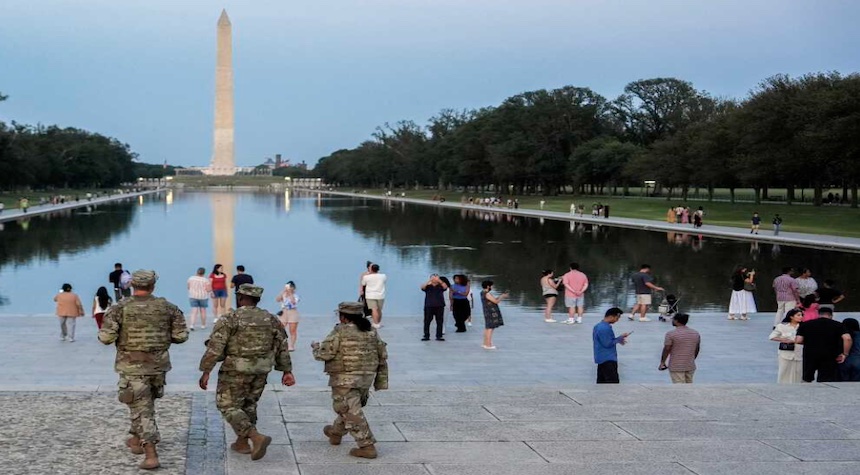Three states, led by Republican governors, announced on Saturday that they would be sending hundreds of National Guard members to the nation’s capital. This move is seen to support the Trump administration’s efforts to revise policing in Washington through a federal crackdown on crime and homelessness.
Reports from West Virginia indicate that between 300 to 400 Guard troops are to be deployed, while South Carolina has pledged 200, and Ohio intends to send 150 in the coming days. This marks a significant escalation of federal intervention.
The Trump administration had federalized local police forces and activated about 800 District of Columbia National Guard members. The presence of these outside troops, in addition to the existing D.C. Guard deployment and federal law enforcement, suggests a tightening control of the city by President Trump.

The National Guard’s involvement in the federal intervention has been limited thus far. Their tasks include patrolling at landmarks like the National Mall and Union Station, and assisting law enforcement with tasks including crowd control. However, the necessity of additional troops is unclear.
This move has been met with protests. A demonstration against Trump’s intervention drew a considerable crowd to Dupont Circle on Saturday before a march to the White House. Some protesters held signs reading, “No military occupation.”
Amid these developments, local city leaders, despite their obligation to cooperate with Trump’s order under federal laws, have expressed concerns over the scope of the president’s takeover. Federal agents in the city’s most highly trafficked neighborhoods have received mixed responses, with some residents offering praise and others raising alarms.

This federal intervention is an emergency measure prompted by what President Trump declared as the “city government’s failure to maintain public order.” He stated that this impedes the “federal government’s ability to operate efficiently to address the nation’s broader interests without fear of our workers being subjected to rampant violence.”
In a letter to city residents, Mayor Muriel Bowser, a Democrat, wrote, “Our limited self-government has never faced the type of test we are facing right now,” and encouraged residents to stand together.
This raises important questions about the role of federal intervention in local matters and the extent to which it is necessary for the maintenance of public order. As we continue to monitor this developing situation, we are reminded of the importance of staying informed and seeking the truth.


